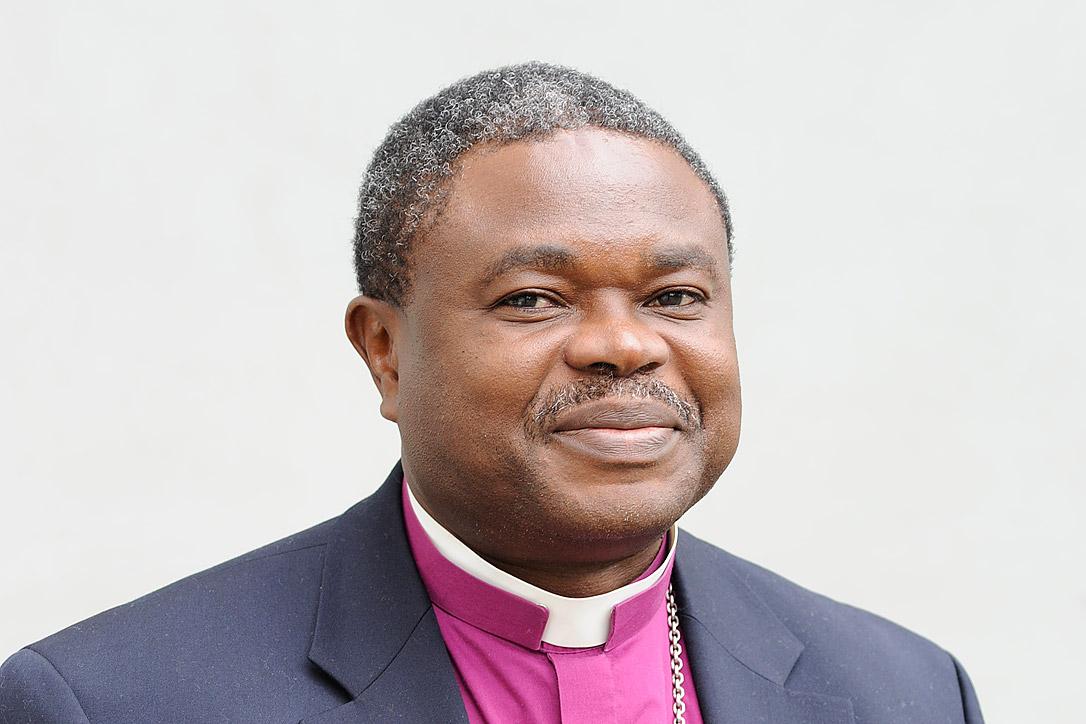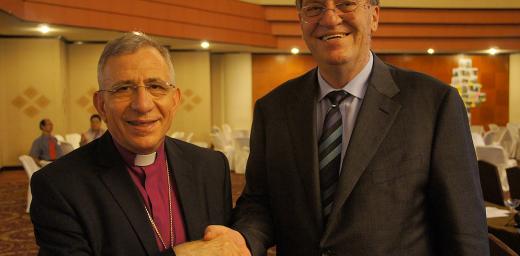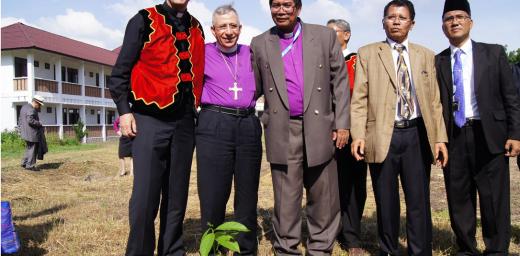LWF Vice-President Malasusa: “Being Peacemakers at Heart”

Bishop Alex G. Malasusa. Photo: LWF/H. Putsman-Penet
At its 2014 meeting in Medan, Indonesia, the LWF Council adopted a public statement against violence in sub-Saharan Africa. “We strongly and unreservedly condemn violence irrespective of who the perpetrators are,” the statement said.
It specifically called on Boko Haram to release the captured school girls in Nigeria, the Al-Shabaab militia and its allies in East Africa to “desist from using violence as a vehicle to air and articulate their grievances,” and the Seleka and anti-Balaka militia in the Central African Republic to abstain “from killing their fellow citizens.” It urged combatants in South Sudan to cease hostilities which have caused much bloodshed and displaced civilians during the planting season, thereby putting the lives of nearly 7 million people at the risk of famine.
The statement called on African governments as well as UN member states, LWF member churches and faith groups in the region to unite against violence.
Such a statement issued by faith-based organizations bears great importance in the region, LWF Vice-President Bishop Alex G. Malasusa of the Evangelical Lutheran Church in Tanzania (ELCT) says. “In Africa, everybody is religious. Everybody goes to a mosque or a church or worships in a traditional religion. Any statement taken up by the church is considered very important and likely to be taken up,” he says, adding that “through this statement people will see the strength of the church and of the Lutheran communion.”
Although Tanzania is not a conflict zone, the violence in the neighboring countries is affecting Tanzania, Malasusa says. “We have had four incidents, two of them in Lutheran churches,” he explains. “People are terrified that the peace we preserved for a long time in Tanzania is going away. Violence in other countries is violence in our country.”
While some of the incidents were directed at Lutheran churches, Malasusa emphasizes that violence and fundamentalism are not limited to certain religious groups. “When the blast in the Lutheran church happened, everyone thought it had a Muslim background, but a good Muslim would never do that,” he says. “We have been living together peacefully for a lifetime, there has been intermarriage and good friendship. It is important not to generalize.”
The ELCT bishop encourages faith groups to take a stand against the violence and Christians not to be afraid of attending worship. “It is essential to preach the gospel in this situation,” he emphasizes. “Let’s play the role of being peacemakers at heart.”
Council 2014 News | Council 2014 Blog | Council 2014 Documents | Council 2014 Photos





